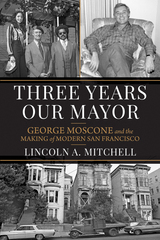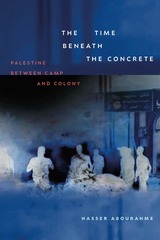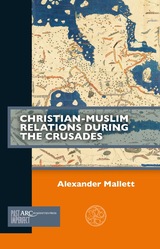
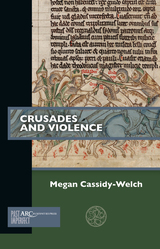

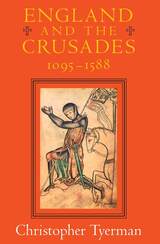
Drawing on a wide range of archival, chronicle, and literary evidence, Tyerman brings to life the royal personalities, foreign policy, political intrigue, taxation and fundraising, and the crusading ethos that gripped England for hundreds of years.
"An ambitious task to undertake. . . . Tyerman has done the job not only thoroughly but brilliantly. . . . A highly impressive study, deserving rich praise and wide readership."—Norman Housley, Times Literary Supplement
"Christopher Tyerman has written a wonderful book. . . . [He] manages to confront thorny issues in scholarship and to contribute new perspectives on them."—William Chester Jordan, American Historical Review
"Tyerman provides valuable insights into preaching, recruitment, and the funding and organisation of crusading expeditions. . . . Fascinating new perspectives on English history."—Edward Powell, Sunday Times
"Impressive. . . . Tyerman's research has yielded valuable evidence, and his admirably lucid argument sheds new light on a complex and bloody period in English history."—Virginia Quarterly Review
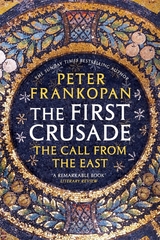
“The most significant contribution to rethinking the origins and course of the First Crusade for a generation.”
—Mark Whittow, Times Literary Supplement
“Filled with Byzantine intrigue, in every sense this book is important, compellingly revisionist and impressive. It refocuses the familiar western story through the eyes of the emperor of the east and fills in the missing piece of the puzzle of the Crusades.”
—Simon Sebag Montefiore, author of Jerusalem: The Biography
“Highly readable…its presentation of political machinations, compromises, and betrayals seems utterly convincing.”
—Michael Dirda, Washington Post
“A dazzling book, perfectly combining deep scholarship and easy readability. The most important addition to Crusading literature since Steven Runciman.”
—John Julius Norwich, author of Byzantium
“Fluent and dramatic…Frankopan rightly places the Emperor Alexios at the heart of the First Crusade, skillfully adding a dimension frequently missing from our understanding of this seminal event.”
—Jonathan Phillips, author of Holy Warriors
In 1096, an expedition of extraordinary scale and ambition set off from western Europe on a mass pilgrimage to Jerusalem. Three years later, after a journey that saw acute hardship, the most severe dangers, and thousands of casualties, the knights of the First Crusade found themselves storming the fortifications and capturing the Holy City. Against all odds, the expedition had returned Jerusalem to Christian hands.
In this groundbreaking book, Peter Frankopan paints a vivid picture of this infamous confrontation between Christianity and Islam. Basing his account on long-ignored eastern sources, he gives a provocative and highly original explanation of the world-changing events that followed. The Vatican’s victory cemented papal power, while Constantinople, the heart of the still-vital Byzantine Empire, never recovered. Frankopan’s revolutionary work shows how the taking of Jerusalem set the stage for western Europe’s dominance and shaped the modern world.

God's War offers a sweeping new vision of one of history's most astounding events: the Crusades.
From 1096 to 1500, European Christians fought to recreate the Middle East, Muslim Spain, and the pagan Baltic in the image of their God. The Crusades are perhaps both the most familiar and most misunderstood phenomena of the medieval world, and here Christopher Tyerman seeks to recreate, from the ground up, the centuries of violence committed as an act of religious devotion.
The result is a stunning reinterpretation of the Crusades, revealed as both bloody political acts and a manifestation of a growing Christian communal identity. Tyerman uncovers a system of belief bound by aggression, paranoia, and wishful thinking, and a culture founded on war as an expression of worship, social discipline, and Christian charity.
This astonishing historical narrative is imbued with figures that have become legends--Saladin, Richard the Lionheart, Philip Augustus. But Tyerman also delves beyond these leaders to examine the thousands and thousands of Christian men--from Knights Templars to mercenaries to peasants--who, in the name of their Savior, abandoned their homes to conquer distant and alien lands, as well as the countless people who defended their soil and eventually turned these invaders back. With bold analysis, Tyerman explicates the contradictory mix of genuine piety, military ferocity, and plain greed that motivated generations of Crusaders. He also offers unique insight into the maturation of a militant Christianity that defined Europe's identity and that has forever influenced the cyclical antagonisms between the Christian and Muslim worlds.
Drawing on all of the most recent scholarship, and told with great verve and authority, God's War is the definitive account of a fascinating and horrifying story that continues to haunt our contemporary world.
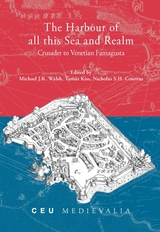
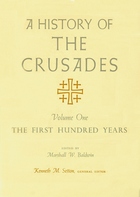
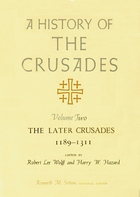
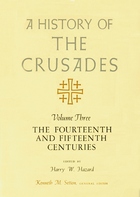
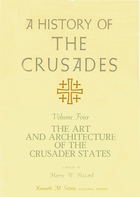
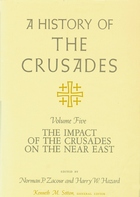
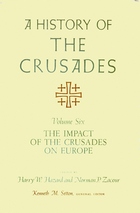


Working simultaneously on two levels, Saladin represents the best kind of biography—a portrait of a man who is said to have made an age, and the most complete account we have to date of an age that made the man. Unlike biographies that focus on Saladin’s military exploits, especially the recapturing of Jerusalem from European Crusaders in 1187, Eddé’s narrative draws on an incredible array of contemporary sources to develop the fullest picture possible of a ruler shaped profoundly by the complex Arabian political environment in which he rose to prominence. The result is a unique view of the Crusades from an Arab perspective.
Saladin became a legend in his own time, venerated by friend and foe alike as a paragon of justice, chivalry, and generosity. Arab politicians ever since have sought to claim his mantle as a justification for their own exercise of power. But Saladin's world-historical status as the ideal Muslim ruler owes its longevity to a tacit agreement among contemporaries and later chroniclers about the set of virtues Saladin possessed—virtues that can now be tested against a rich tapestry of historical research. This tension between the mythical image of Saladin, layered over centuries and deployed in service of specific moral and political objectives, and the verifiable facts of his life available to a judicious modern historian is what sustains Anne-Marie Eddé's erudite biography, published to acclaim in France in 2008 and offered here in smooth, readable English translation.
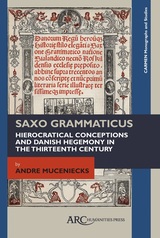
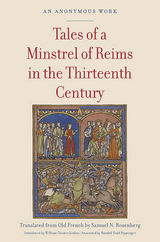

READERS
Browse our collection.
PUBLISHERS
See BiblioVault's publisher services.
STUDENT SERVICES
Files for college accessibility offices.
UChicago Accessibility Resources
home | accessibility | search | about | contact us
BiblioVault ® 2001 - 2025
The University of Chicago Press



